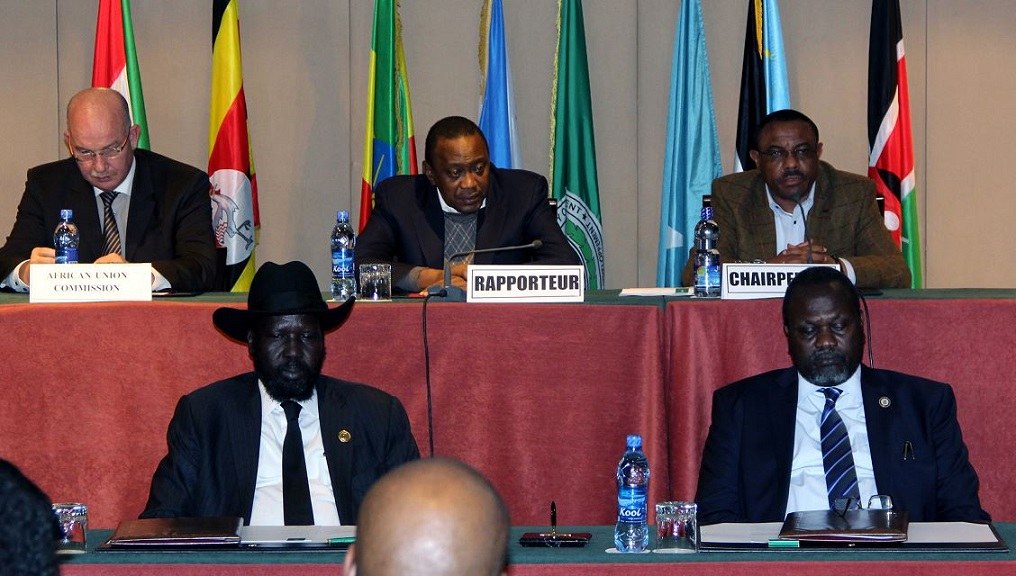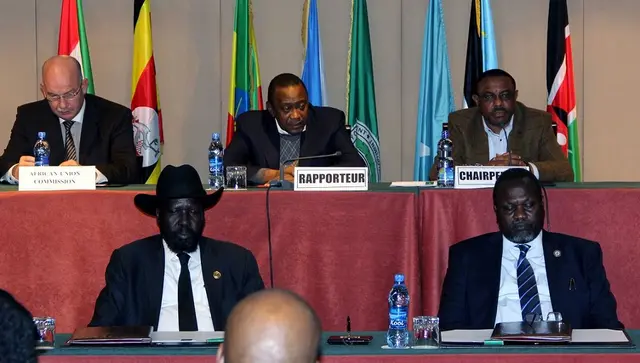
FILE PHOTO: President of South Sudan, Salva Kiir Mayardit (front L) attends a meeting with Riek Machar (front R), AU Commissioner for Peace and Security Ismail Chergui (rear L), Kenyan President, Uhuru Kenyatta (rear C) and Former Prime Minister of Ethiopia Hailemariam Desalegn (rear R) in Addis Ababa, Ethiopia on February 01, 2015. /Getty Images
The formation of the transitional government in South Sudan could be unduly delayed following disagreements over portfolio balance between President Salva Kiir and first Vice President Riek Machar.
Meetings in Juba on February 27 could not reach a compromise after Dr Machar's Sudanese People's Liberation Movement in Opposition (SPLM-IO) complained that President Kiir's side has not only taken all the key ministries, but has been offering ministries to other signatories without consultations.
President Kiir's side wants to retain the Finance, Petroleum, Defence and Interior, and Foreign Affairs dockets.
James Oryema, the SPLM-IO representative in Kenya said that his movement is going to hold on to their position and that the formation of the transitional government of national unity (TGoNU) could take some time if the other side remains intransigence.
"We are demanding that four ministries be divided into two while claiming the Petroleum and Interior dockets then we can select the rest of the remaining seven ministries. These were the ministries we had in 2016," said Mr Oryema.
According to the September 2018 agreement, the country is supposed to have 35 Cabinet ministers, with President Kiir's SPLM in government getting 20 ministries, SPLM-IO nine ministries; South Sudan Opposition Alliance (SSOA) three; and Former Detainees two and Other Political Parties one ministry each.
The agreement further states that the parties are required to choose ministries according to the percentages from the three clusters; Governance, economic and services, with President Kiir allowed to pick the first 20 ministries and five deputies, followed by Dr Machar who has nine slots, in that order
The transitional government will have one president, five vice presidents, 35 ministers, 10 deputy ministers, 550 MPs, 10 governors and three Area Administrators.
Source(s): The East African
 简体中文
简体中文

